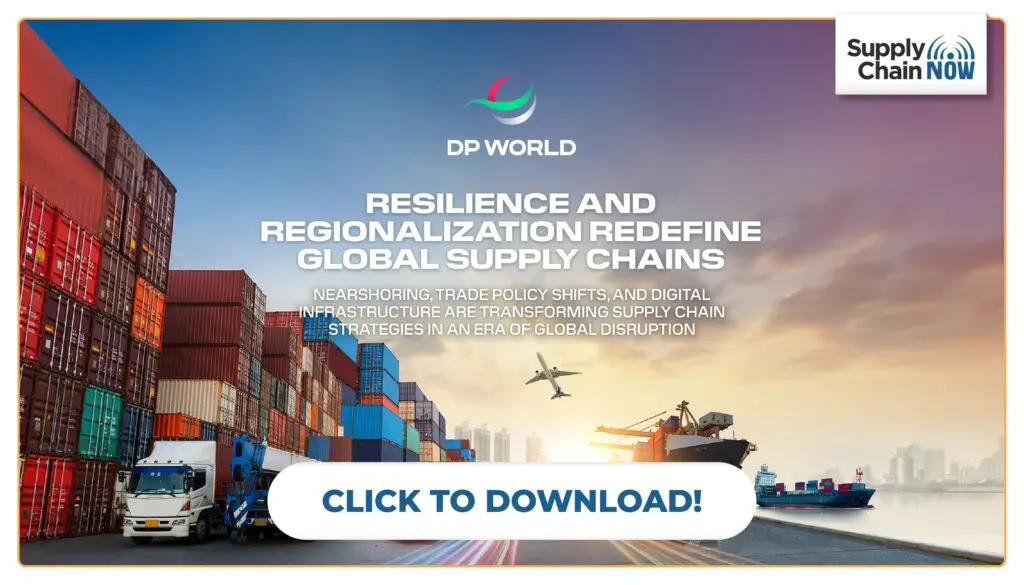
More

August 28, 2025
Resilience and Regionalization Redefine Global Supply Chains
How nearshoring, trade policy shifts, and digital infrastructure are transforming strategies in an era of disruption Global supply chains are being tested like never before. Rising tariffs, shifting trade policies, and the push for sustainability have accelerated a new era of resilience. Businesses are no longer simply reacting to disruptions—they’re proactively reconfiguring their networks with nearshoring, diversification, and advanced technology. The latest white paper from DP World explores how companies across the Americas are turning volatility into opportunity by investing in regional supply chains, leveraging economic zones, and adopting digital innovation to stay competitive in a fragmented global market. Download your copy today to see how you can position your business for strength and agility. What You’ll Learn: This white paper provides actionable insights for supply chain leaders navigating geopolitical, economic, and technological change. Inside, you’ll discover: ✔ Why resilience now outweighs efficiency: 88% of businesses plan to reconfigure supply chains in 2025. ✔ How trade policies are driving regionalization: New U.S. tariffs are reshaping sourcing strategies and opening opportunities in Latin America. ✔ Where investment is accelerating growth: Nearshoring fueled $36B in foreign investment in Mexico in 2024, with DP World investing $2.5B in logistics infrastructure across Latin…

June 19, 2020
This Week on Supply Chain Now: Week of June 15th-19th
Another great week here at Supply Chain Now! Have you listened to all the episodes? If not, you can check them all out here: We introduced a new series on Monday, with This Week in Business History, where Scott looks back at some of the biggest historical events in business history for the week ahead. Supply Chain Now · “June 15th- This Week in Business History: Goodyear, IBM, & More” Then on Tuesday, we continued in the Logistics with Purpose series and welcomed Melenie York with Whitehouse & Schapiro. Supply Chain Now · “Logistics with Purpose: Melenie York with Whitehouse & Schapiro” On Wednesday, Scott and Greg tackled the top news in supply chain on the Supply Chain Buzz. Supply Chain Now · “Supply Chain Buzz for June 15th: Grocery, Bots, Retail Challenges, & More” Scott and Greg were joined by Radu Palamariu with Alcott Global on Thursday, as they discussed the current supply chain talent market. Supply Chain Now · “Key Observations in the Current Supply Chain Talent Market: Radu Palamariu with Alcott Global” And we wrapped up the week with a world-class supply chain leader as Scott and Greg…
